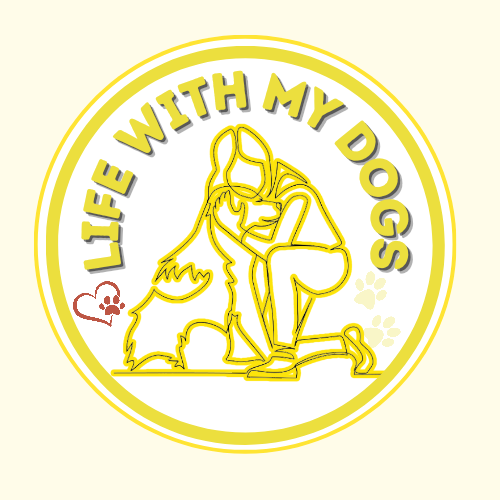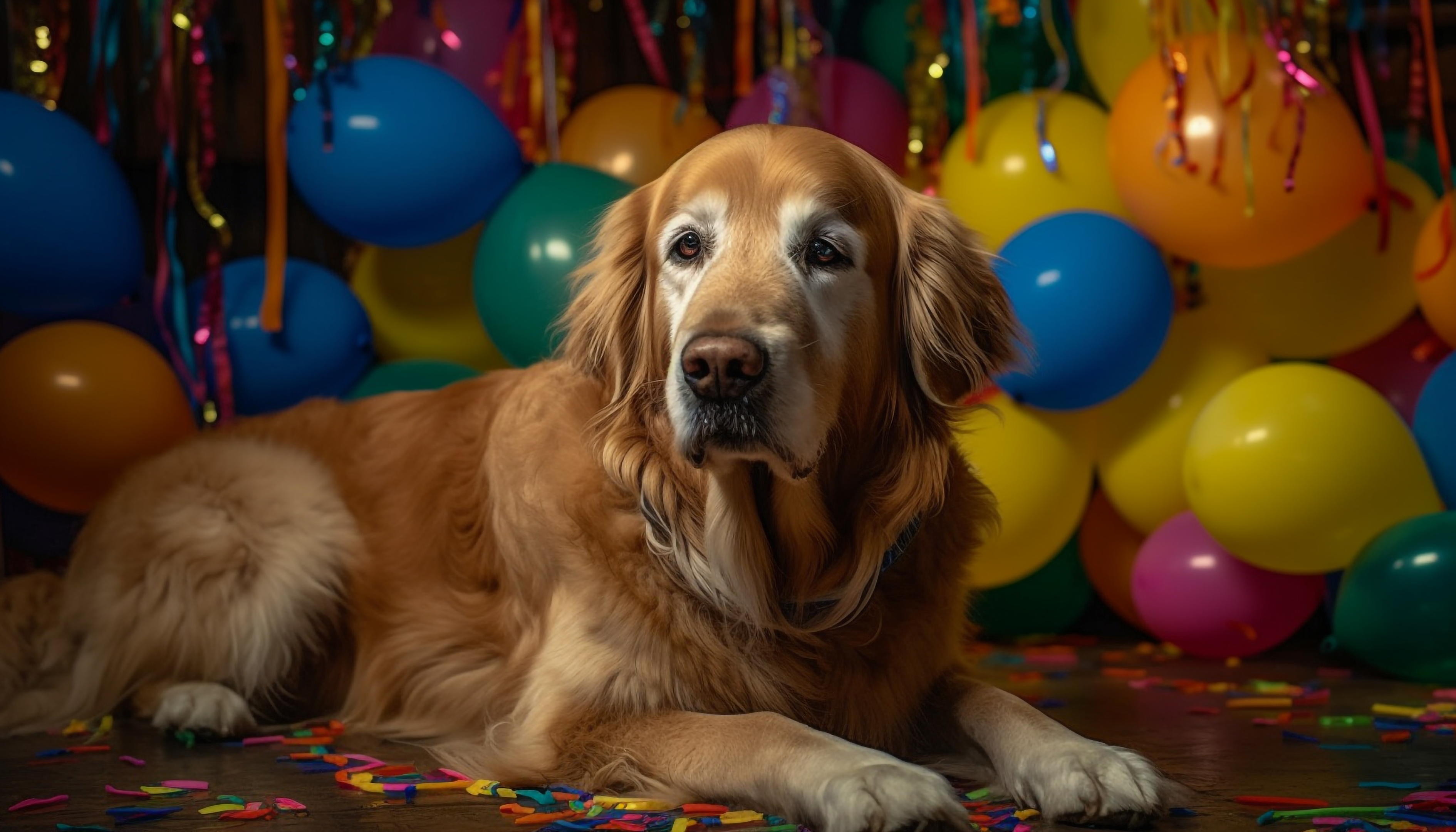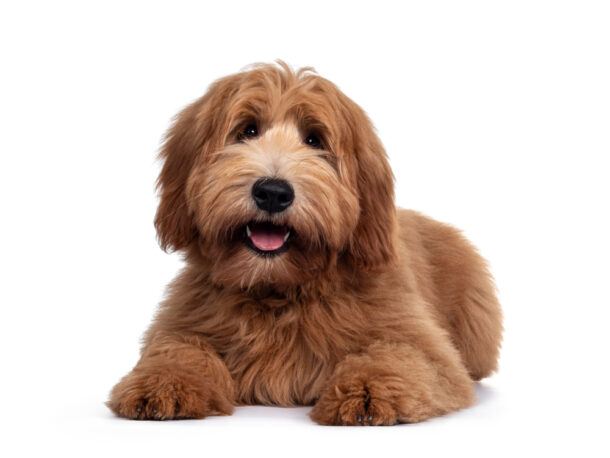LifeWithMyDogs is supported by our audience. When you purchase through one of our links, we may earn a small affiliate commission. As an Amazon Associate I earn from qualifying purchases. Your cost is not affected.
**********
Hey there! So, you’ve got a senior dog who’s dealing with incontinence? Don’t worry, you’re not alone. It’s a common issue many pet parents face as their dogs age. Managing Senior Dog Incontinence doesn’t have to be overwhelming. With the right tips and solutions, you can help your furry friend stay comfortable and maintain their dignity in their golden years. Let’s dive into some practical advice to make life easier for you and your senior pup!
Senior Dog Incontinence: Managing Your Aging Pet’s Needs
Dealing with Senior Dog Incontinence is a common challenge many of us face. It can affect both their quality of life and ours as caregivers. As dogs age, they might struggle to control their bladder and bowels like they used to.
Senior dog incontinence usually happens because of a bunch of different health issues, like urinary tract infections, kidney disease, arthritis, dementia, or hormone imbalances.
If your dog shows signs of incontinence, like peeing inside or having accidents, it’s super important to get it checked out by a vet. They can help you determine the best ways to manage it and ensure your furry friend is comfortable. Let’s dig into this a bit more!
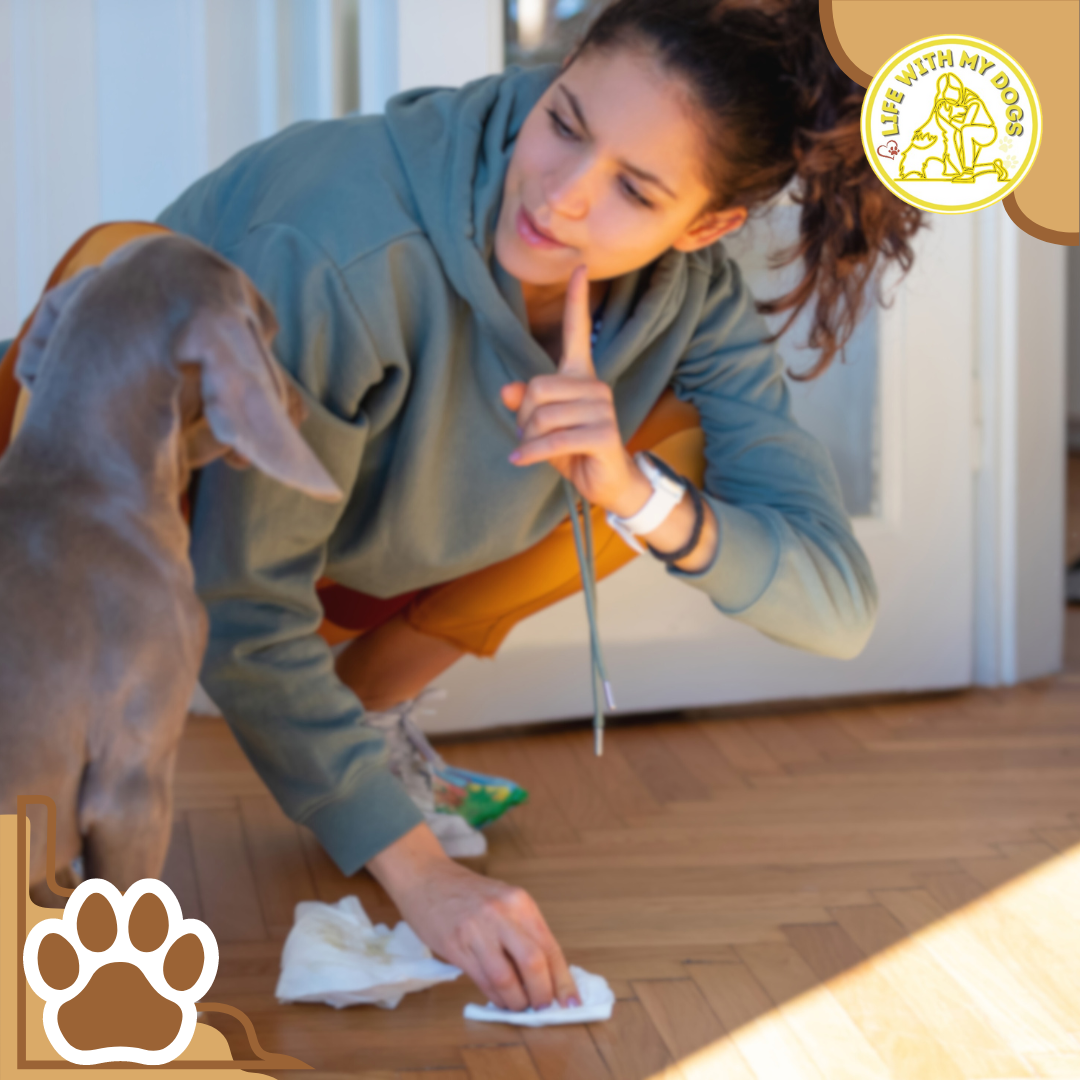
Key Takeaways
- Senior dog incontinence, involving involuntary urine leakage, is a common issue that can impact both the dog’s and the pet parent’s quality of life.
- Types of incontinence range from Urge Incontinence to Stress Incontinence.
- Early detection and a clear diagnosis are crucial to effectively managing this condition.
- Managing incontinence in older dogs involves different tactics, from medication to lifestyle modifications.
- Consistency, the use of appropriate products, and daily care routines are essential to helping older dogs live comfortable lives. Tailored diet and exercise are crucial for maintaining urinary health in aging dogs.
Understanding Senior Dog Incontinence
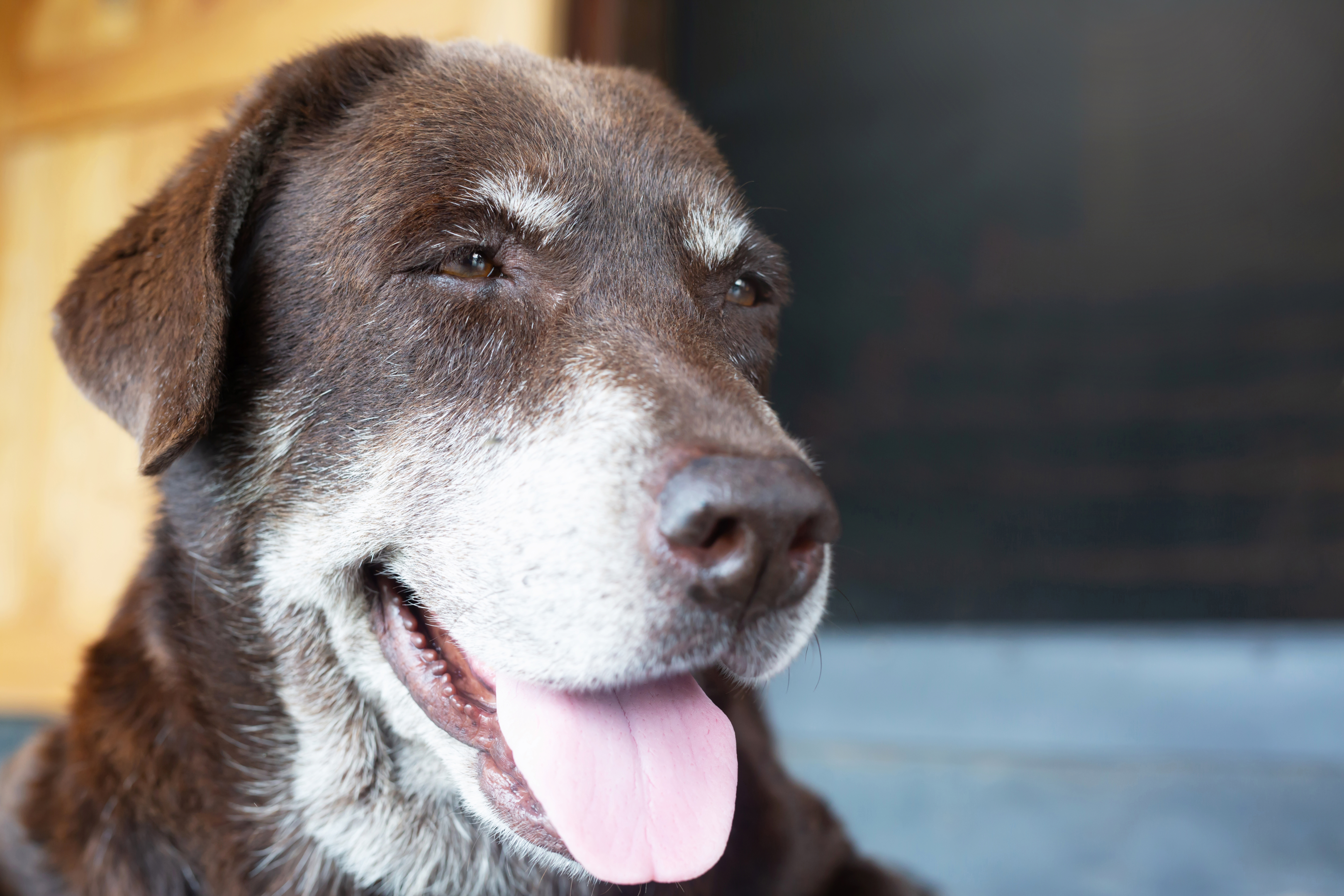
Senior dog incontinence is a common issue involving involuntary urine leakage, which can impact both the dog’s quality of life and the pet parent’s.
Causes of Incontinence in Older Dogs
As dogs age, their bodies undergo changes that can affect their urinary health in various ways. Here are some factors that contribute to senior dog incontinence:
- Hormonal Imbalance: In older dogs, especially females, a decrease in estrogen can weaken the urinary sphincter, leading to incontinence. Similarly, a drop in testosterone in males can have a similar effect.
- Urinary Tract Issues: Conditions like urinary tract infections, bladder stones, or tumors can cause irritation and increased urgency, leading to involuntary urine leakage.
- Chronic Diseases: Kidney or diabetes can increase water consumption and urine production, overwhelming the bladder’s capacity to hold urine.
- Mobility Issues: Diseases like arthritis can make it challenging for dogs to urinate in the correct position, resulting in involuntary leakage.
Here’s an additional informational video about senior dog incontinence.
By: Revival Animal Health
Did You Know?
Older dogs have unique requirements that differ from those of younger dogs. As they age, their bodies change so that they might require less exercise, a softer bed, and a diet designed for senior dogs. They might also start to lose some of their hearing or vision. Senior dogs can still live happy and healthy lives with some extra care.
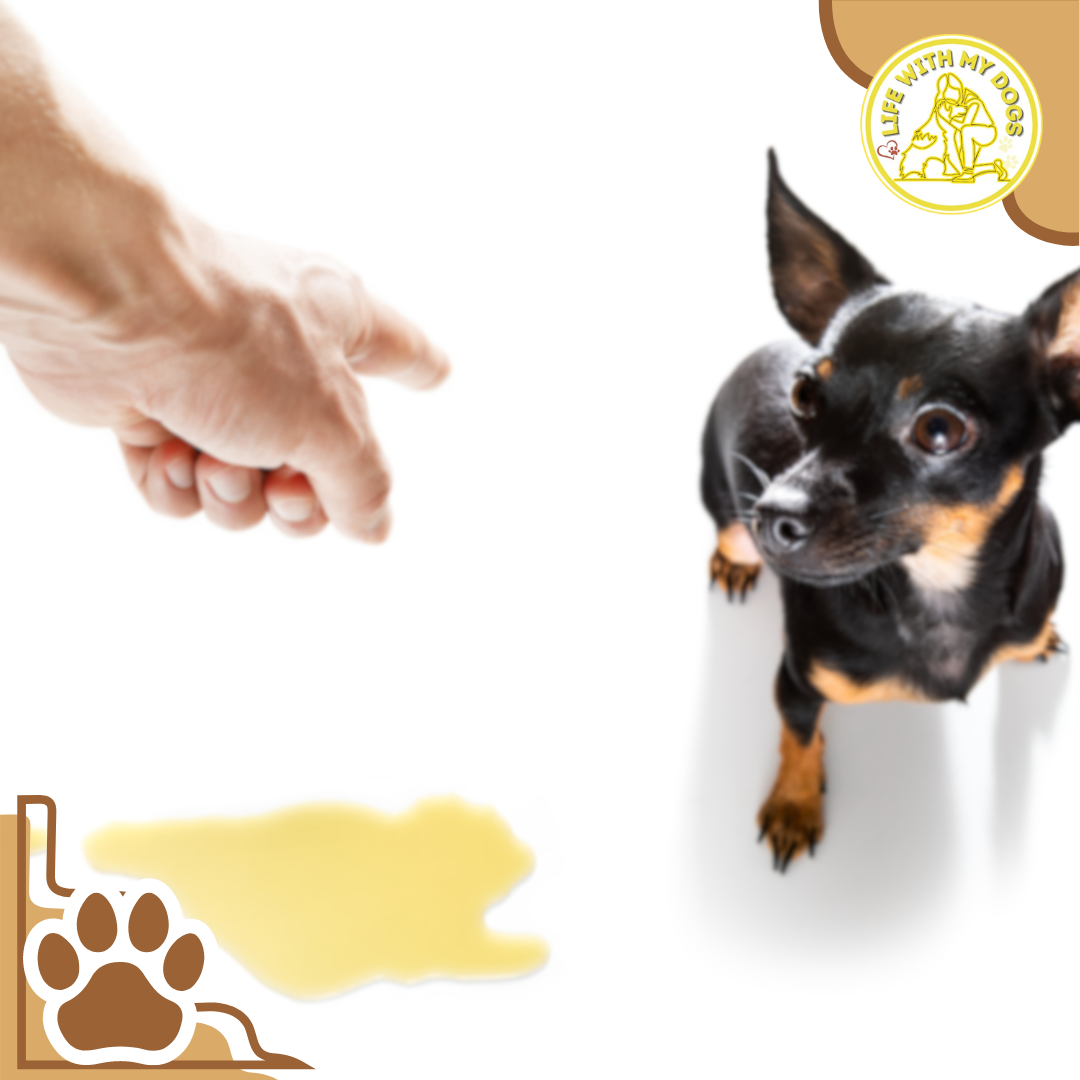
Types of Incontinence in Senior Canines
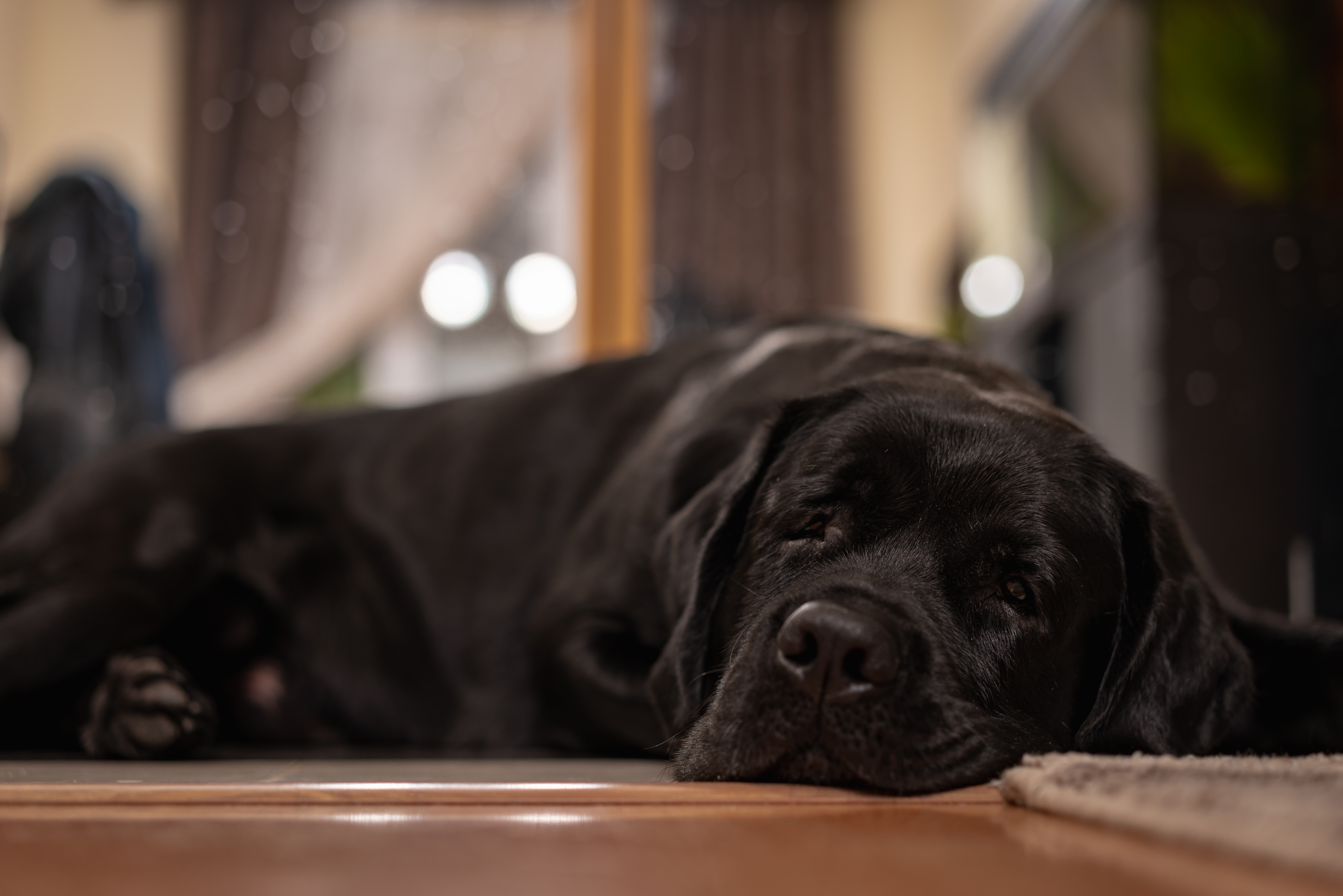
- Urge Incontinence: This happens when dogs suddenly need to urinate, usually due to a bladder infection or inflammation.
- Overflow Incontinence: This prevents dogs from fully emptying their bladder, resulting in continuous dribbling of urine.
- Functional Incontinence: Mobility or cognitive issues make reaching a suitable urination place difficult for the dog.
- Stress Incontinence: This can occur when pressure is applied to the bladder, often due to obesity, resulting in involuntary urine leakage.
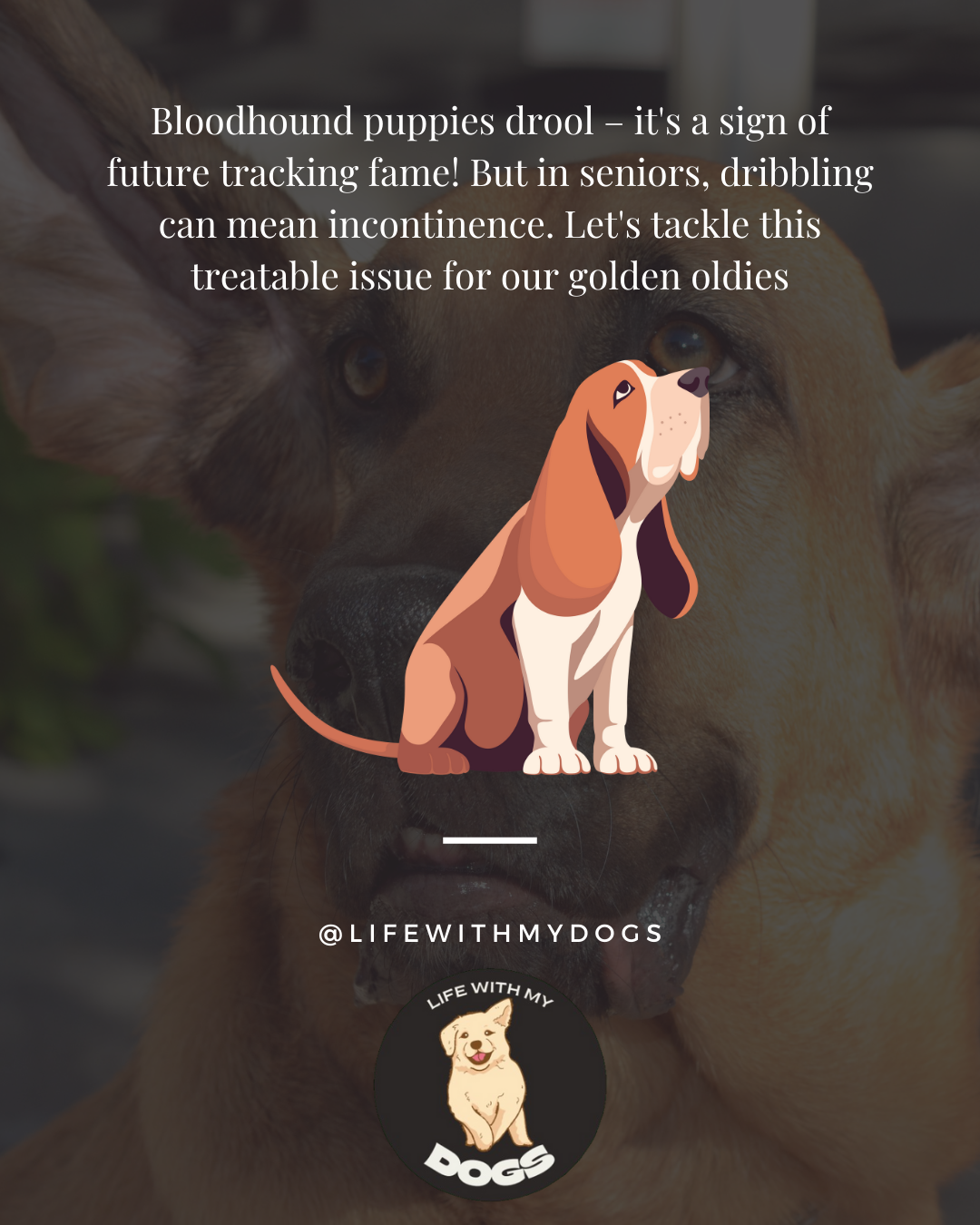
Recognizing and Diagnosing Senior Dog Incontinence
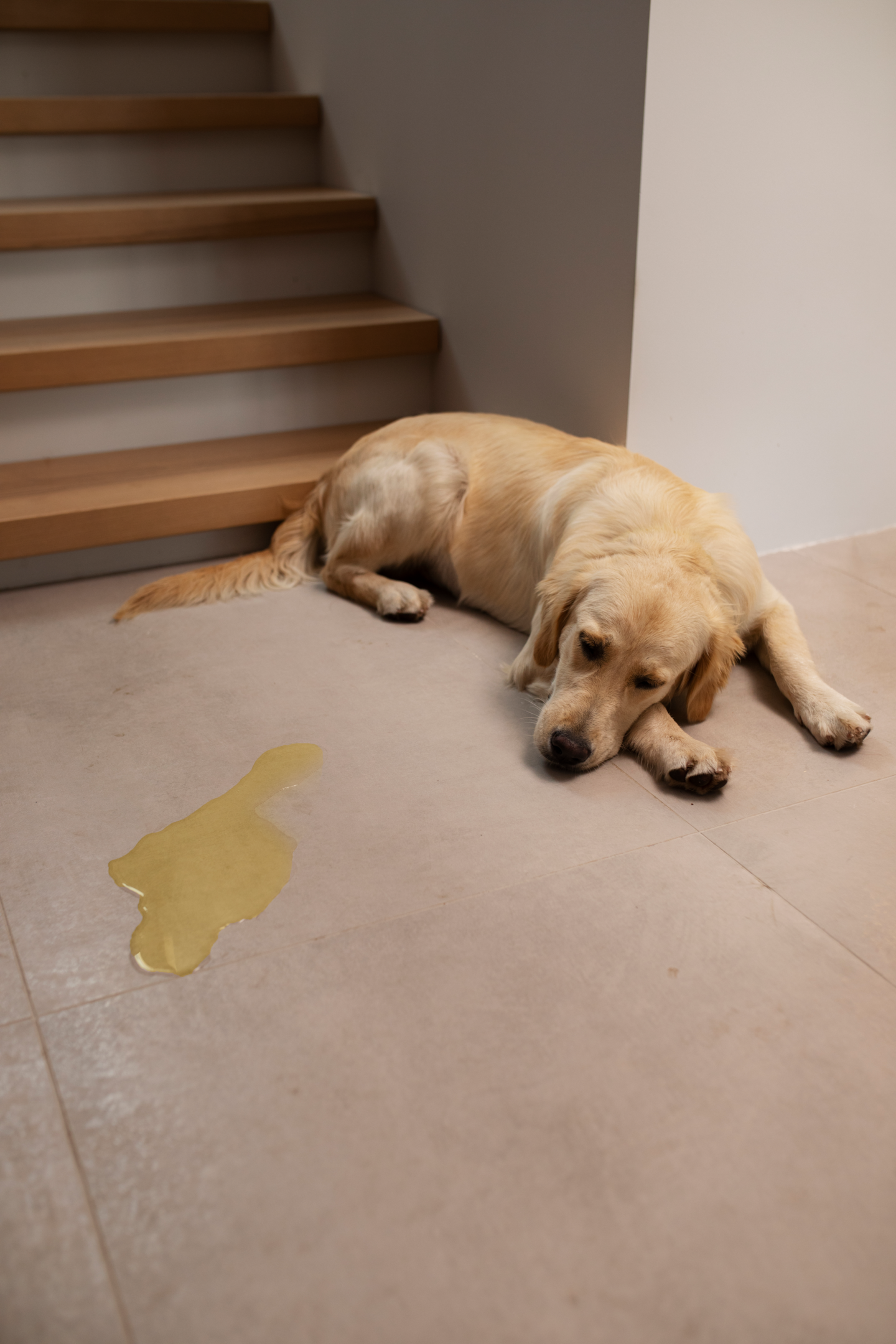
Spotting the signs early and getting a clear diagnosis is crucial to managing this condition effectively.
Recognizing Incontinence Symptoms
Senior dogs might display several signs that could indicate the onset of incontinence. Owners should watch out for:
- Frequent Accidents: You might notice your senior dog urinating inside the house, even though they’ve been well-trained in the past.
- Wet Bedding/Sleep Areas: If you wake up to find your senior dog’s bed, the area where they sleep is wet.
- Dribbling Urine: Your senior dog may have noticeable leaks or urine dribbles, especially when moving around or excited.
- Licking the Genital Area: There has been increased licking in the genital area, possibly due to discomfort or irritation caused by leaking urine.
These signs can indicate that your senior dog is struggling with Senior Dog Incontinence, and it’s essential to seek veterinary advice to manage this issue effectively.

Diagnostic Procedures for Incontinence
When your senior dog shows signs of incontinence, a veterinarian may use several methods to diagnose the issue:
- Physical Examination: The veterinarian will examine your dog to evaluate their health and identify potential urinary tract problems.
- Urinalysis: This is a lab test to detect signs of infection, inflammation, or stones in the urinary system.
- Blood Tests: These tests provide information about kidney function and other health issues that may contribute to incontinence.
- Ultrasound or X-rays: These are imaging techniques that help the vet visually inspect the bladder and spine for any problems that could be causing incontinence.
These diagnostic methods help the vet determine the underlying cause of incontinence to recommend the best treatment for your senior dog.
Managing Senior Dog Incontinence: Treatment Options and Solutions
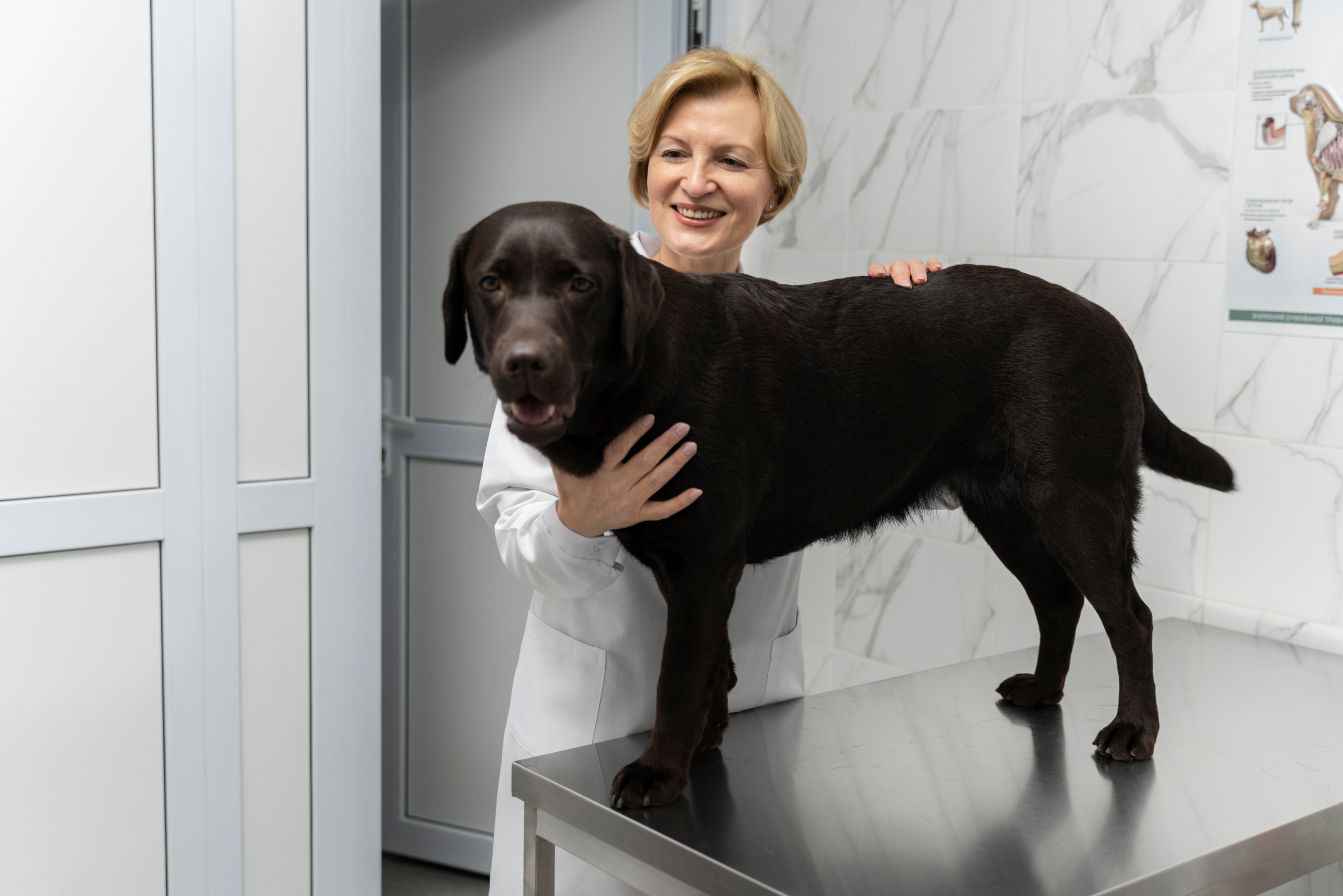
Dealing with incontinence in older dogs means trying different tactics, such as medication.
Medical Treatments
Medications: Sometimes, vets prescribe specific medications like phenylpropanolamine (PPA) to help tighten the bladder sphincter, which can reduce urinary leakage. For female dogs, estrogen supplements might also be an option to improve bladder control.
Surgery: If anatomical issues cause your dog’s incontinence, surgery might be a good solution. For example, dogs with ectopic ureters, where the urinary tube isn’t connected correctly, could benefit from a surgical fix.
Natural Remedies and Supplements
Changing your dog’s diet can be helpful, especially if their incontinence is due to inflammation in the urinary tract. Including foods with anti-inflammatory properties might make a difference.
Natural supplements to their routine, like cranberry extracts and omega-3 fatty acids, can also support their urinary tract health and improve incontinence issues. Additionally, using products designed specifically for senior dog incontinence can be beneficial, too.
Here’s an informative video about how to treat incontinence.
By: Our Pets Health
Did You Know?
Senior dogs are usually calmer and more mellow than younger ones. They’re often happy just cuddling on the couch or going for relaxed, leisurely walks.
Managing and Caring for Senior Dog Incontinence
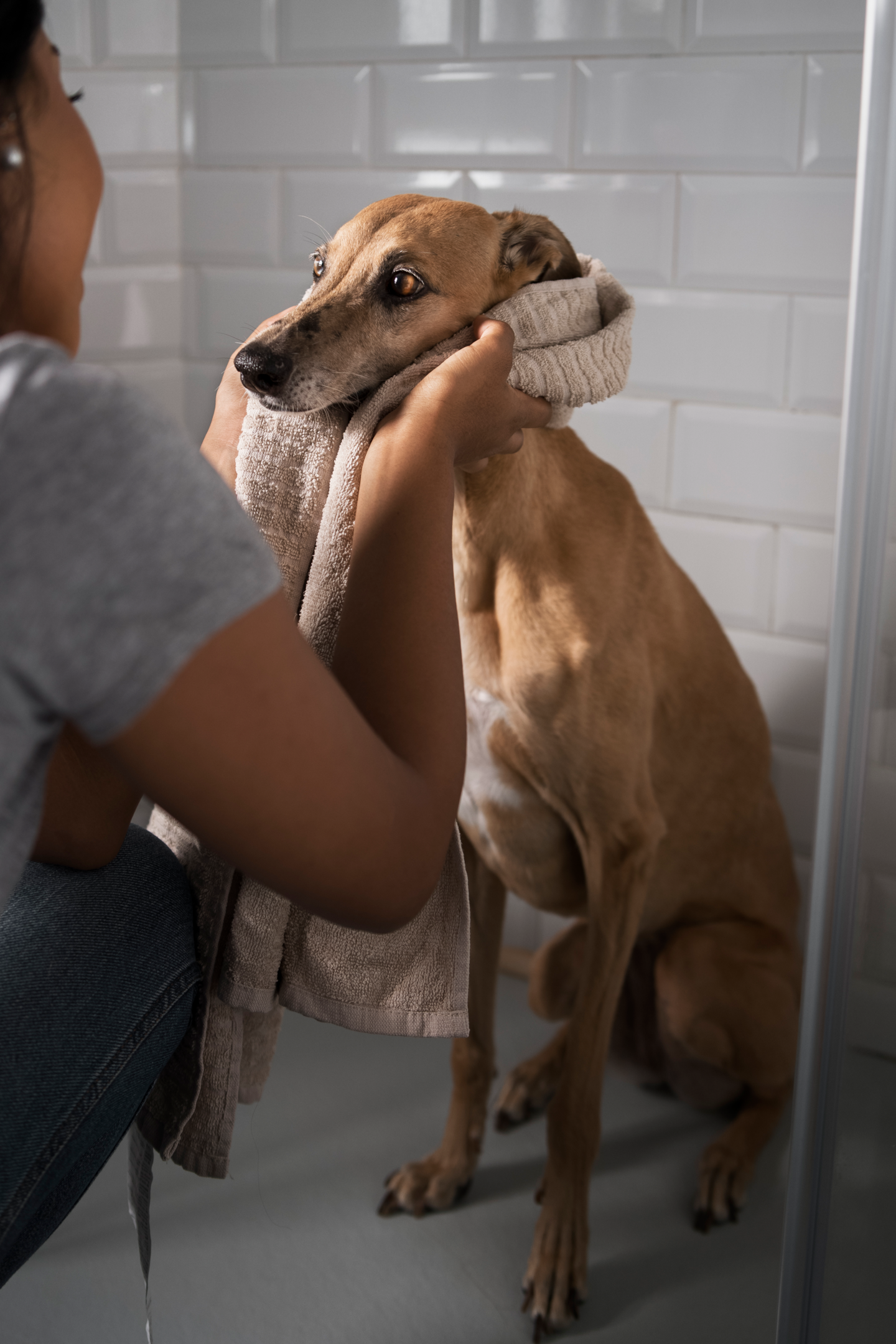
Managing incontinence in older dogs means being consistent and using the right products and daily care routines to help them live a good, comfortable life.
Daily Care Strategies
- Routine: Establishing a regular bathroom break routine can help manage incontinence. Frequent, scheduled outings may also reduce the chance of accidents.
- Environmental Adjustments: Creating an easily cleanable living area with non-slip flooring can prevent falls and help maintain hygiene.
- Hygiene: Regularly cleaning the dog’s affected areas can prevent skin infections and discomfort, underscoring the importance of maintaining cleanliness.
Incontinence Products for Senior Dogs
- Diapers and Pads: Special diapers for senior dogs are available to manage incontinence, and absorbent pads can be placed in sleeping areas.
- Waterproof Bedding: Using waterproof or washable bedding can help ensure the dog sleeps in a dry, comfortable place.
- Medications: Specific medications such as phenylpropanolamine (PPA) can be effective, though a veterinarian should be consulted for proper guidance and prescription.
Lifestyle and Prevention
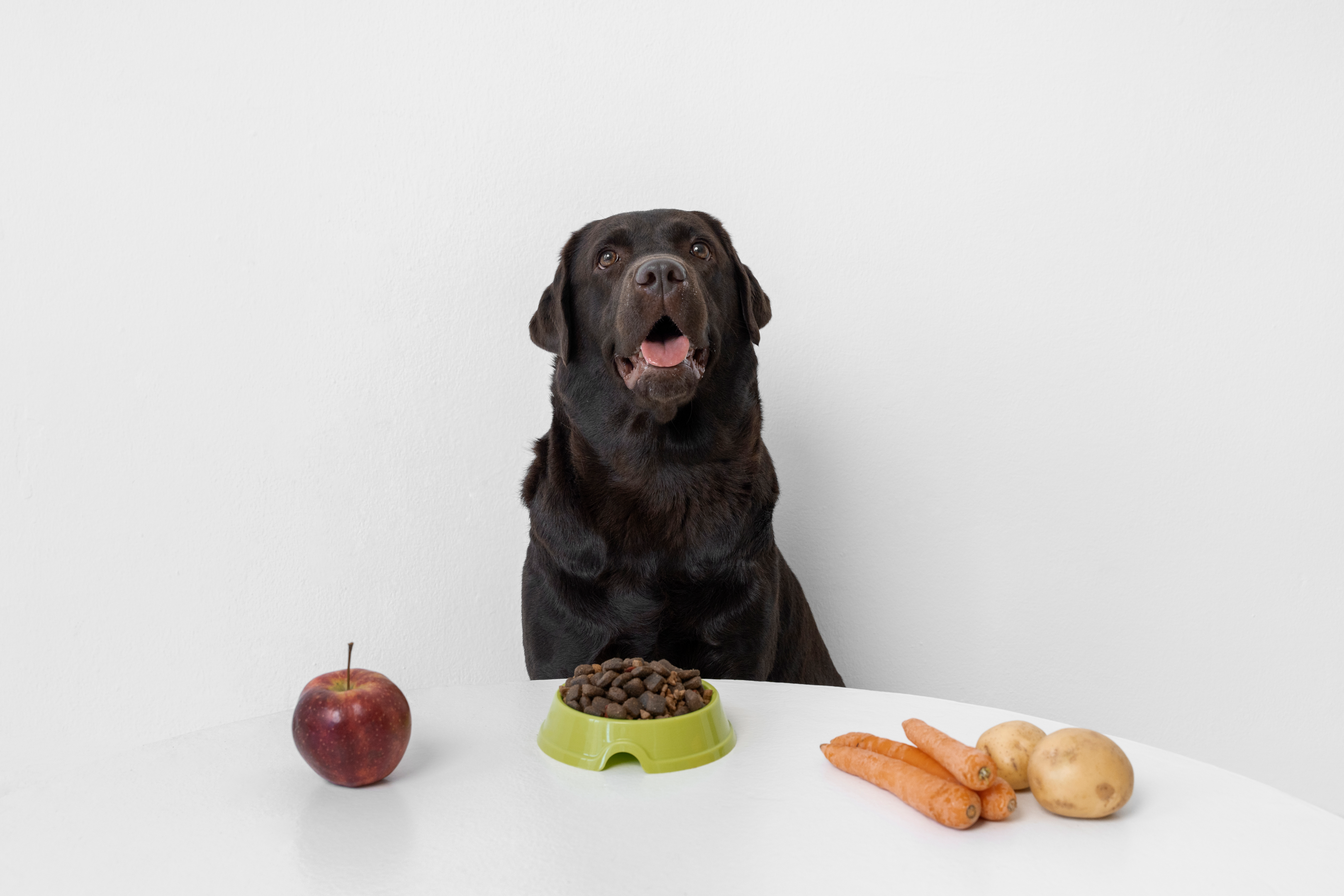
Senior dogs benefit from specific lifestyle adjustments to prevent or manage incontinence issues. Diet and exercise tailored to their aging needs can be crucial in maintaining urinary health.
Dietary Considerations
A balanced diet supports overall health, which is essential for managing incontinence in older dogs. These dogs may require diets lower in calories but rich in fibers and nutrients specific to their age and health needs.
It’s important to provide a diet that supports bladder health, including increased antioxidants and fatty acids. One can explore pet foods specially formulated for senior dogs or consider adding natural supplements known for urinary support, such as cranberries, to their diet.
Exercise and Physical Therapy
Physical therapy and gentle exercise can improve a senior dog’s muscle tone, including the muscles controlling bladder function. It’s important to tailor the intensity of exercise to the dog’s capability and health status, avoiding overexertion. A routine that includes walks and gentle play can help keep the dog’s body and bladder in better shape.
When to Consult a Veterinarian?
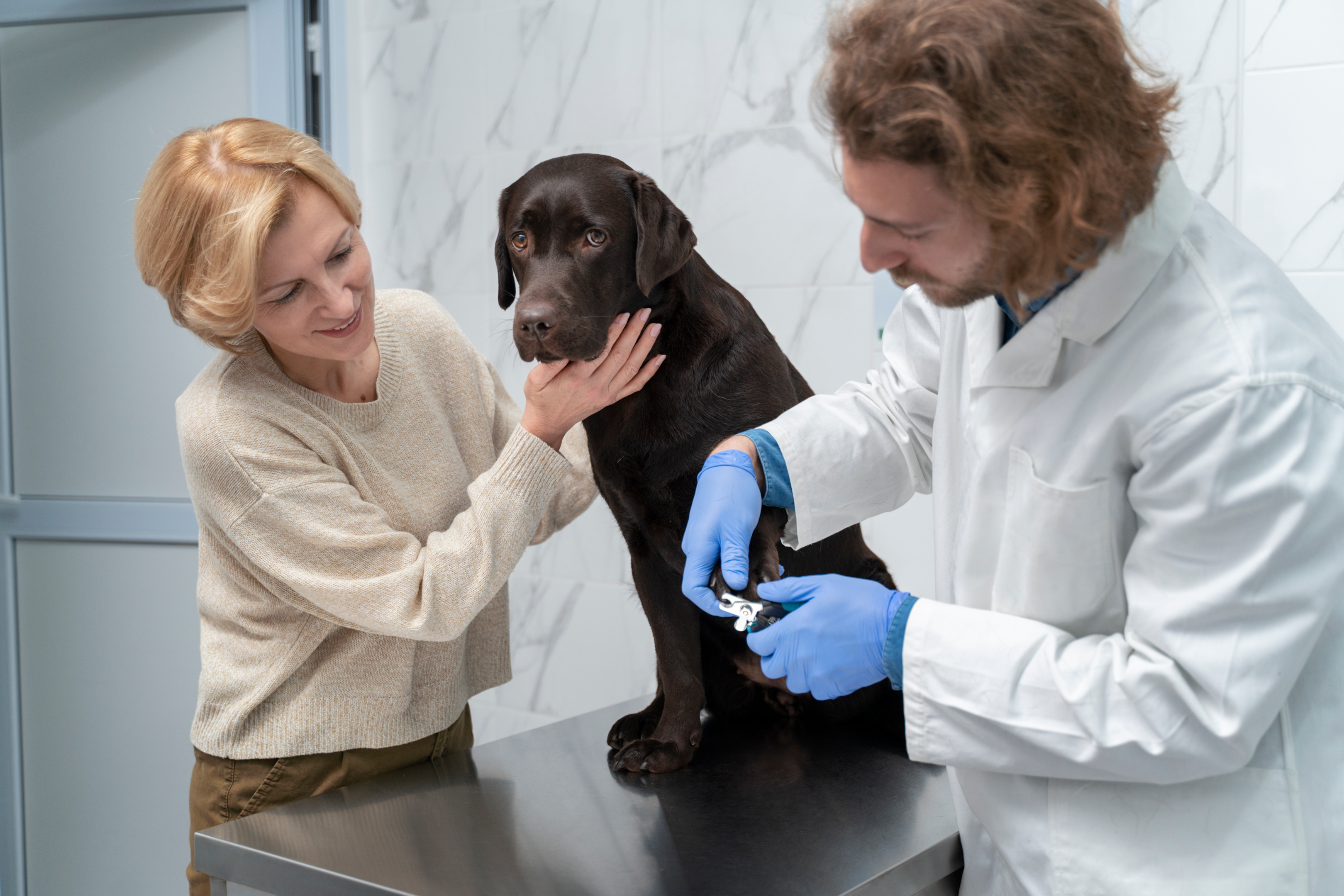
It’s essential to consider the dog’s overall well-being, mobility, appetite, and water intake. It’s important to consult a veterinarian when any of the above symptoms are observed, especially in combination.
Early intervention can not only improve the quality of life for the dog but can also prevent the progression of possible underlying conditions.
Emotional Support and Quality of Life

Dealing with incontinence in senior dogs can be stressful for pets and caregivers. It’s important to handle the situation with empathy and patience. Providing emotional support is key to maintaining your dog’s quality of life. Offering consistent comfort and reassurance helps them feel secure.
Routine: Establishing a routine can help reduce accidents and stress. Try scheduling frequent bathroom breaks and set up easy-to-reach areas for relief.
Comfortable Bedding: Ensure your dog has a dry, comfy resting place. Waterproof or washable dog beds are practical options.
Attention and Engagement: Keep your dog engaged with gentle play and affection to prevent anxiety and depression.
By understanding and managing the physical aspects of incontinence, you can improve your dog’s overall well-being. It’s also important to consider their emotional needs to create a positive environment. Compassionate care can significantly enhance an older dog’s comfort and happiness as they navigate this stage of life.
Managing Senior Dog Incontinence with Compassion and Care
Caring for a senior dog with incontinence can be tough, but it doesn’t have to feel overwhelming. You can help your furry friend live a comfortable and happy life with the right strategies and a compassionate approach.
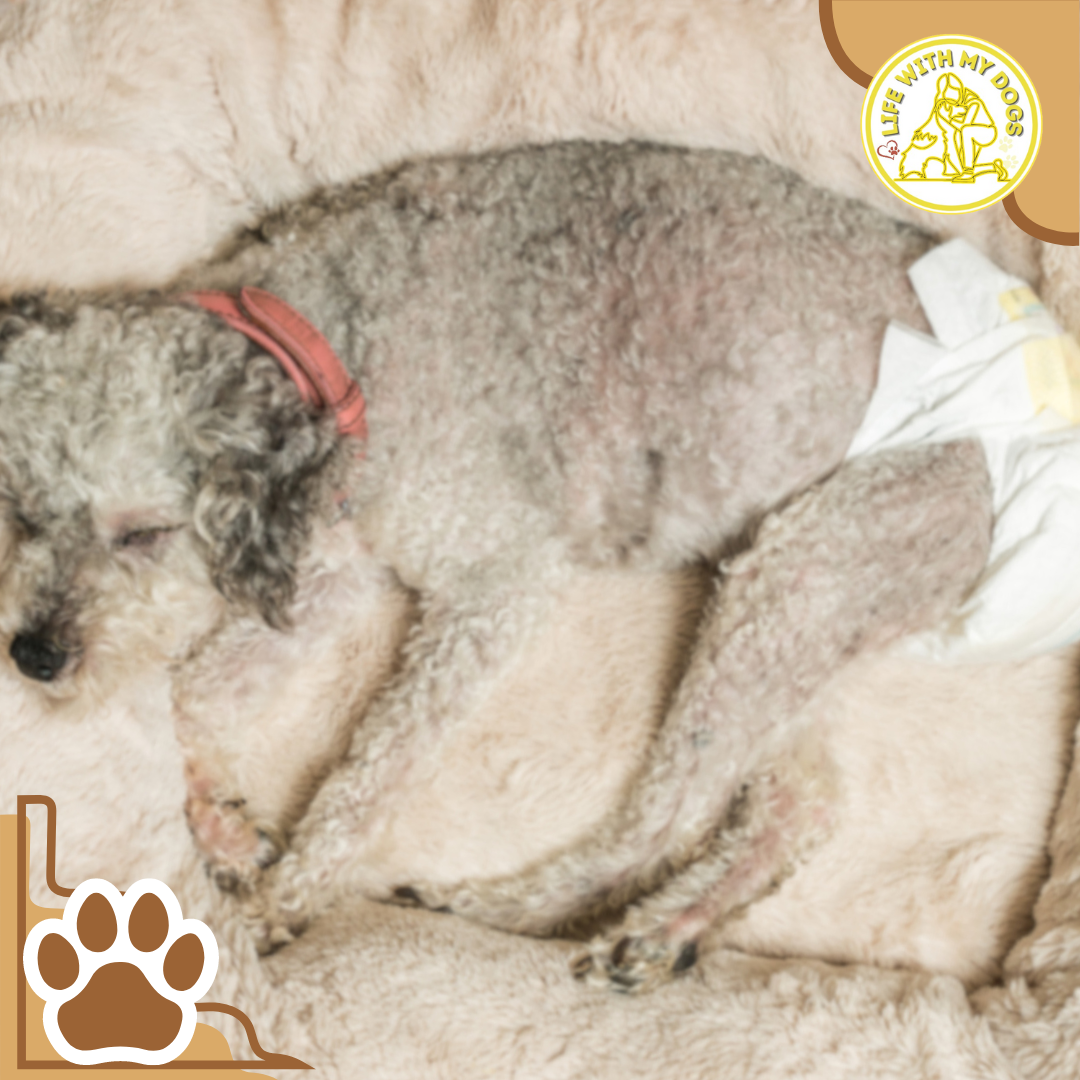
Remember, early intervention and veterinary care are key. Understanding the causes of incontinence and exploring treatment options, from medications to natural supplements, can make a significant difference. Establishing routines, providing comfortable bedding, and engaging your dog with gentle play can help manage incontinence’s physical and emotional aspects.
Ultimately, the goal is to ensure your senior dog feels secure, loved, and supported. By staying patient and empathetic, you can enhance your dog’s quality of life during their golden years.
Frequently Asked Questions
What Are Common Causes of Urinary Incontinence in Older Dogs?
Some common causes of incontinence in senior dogs include hormonal deficiencies, urinary tract infections, kidney disease, and spinal or neurological problems. Age-related muscle weakness and degenerative diseases can also play a role.
How Can You Differentiate Between Behavioral and Medical Causes of Incontinence in Older Dogs?
Behavioral incontinence could be connected to changes in your dog’s environment or daily routine. On the other hand, medical incontinence often comes with additional symptoms such as increased thirst or a change in the color of urine. Your vet can help tell the difference between the two types through diagnostic tests.
At What Age Do Dogs Typically Start Showing Signs of Incontinence?
While incontinence can occur at any age, it’s more common in dogs as they age. It usually starts to show up as dogs enter their senior years. For larger breeds, it can begin as early as seven years old, while smaller breeds might experience it a bit later.
Embark on an Adventure in the Pet Lover’s Paradise!
Dive into a world of furry friends and fantastic finds by connecting with us on social media! Immerse yourself in captivating content insightful product reviews, and become a part of a vibrant community.
Instagram: lifewithmydogs2 Follow us on Instagram for an overflow of heartwarming snapshots and exciting pet escapades!
Pinterest:lifewithmydogs2 Explore a treasure trove of pet inspiration and ideas on Pinterest, where each pin leads you to creative possibilities!
Facebook: 1LWMD Like us on Facebook to keep your finger on the pulse of all pets – from heartwarming stories to the latest pet gear trends!
Twitter: LifeWithMyDogs9 Join the conversation on Twitter, where you can chirp away about the newest pet happenings and stay ahead of the pack with the latest pet trends!
